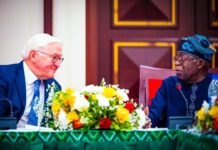Repatriations of Rohingya refugees will begin on schedule by January 22, Myanmar said, as the UN and rights groups cast concern over the process on Thursday.
Some 655,000 minority Rohingya have fled Myanmar’s northern Rakhine State to Bangladesh following a military crackdown, described as ethnic cleansing by the UN, launched in August 2018.
“Refugees would begin returning in line with an agreement signed by the two countries in November.

“The people would return to their original villages after being housed at a “temporary area,” Myanmar’s Minister for Social Welfare, Relief and Resettlement, Win Aye said.
At least 354 Rohingya villages have been burned in Rakhine State since August, according to analysis of satellite imagery by Human Rights Watch.
According to the minister, the UN would be involved “at some stage” in the repatriations, in accordance with the agreement.
A spokesperson for the UN High Commissioner for Refugees has said on Wednesday that returns should not be premature and that “further measures” were required to ensure their safety in Myanmar.
Phil Robertson, Deputy Asia Director at Human Rights Watch, warned saying “Myanmar’s government is in “la la land” if it believes Rohingya would return in line with the minister’s schedule.
“Why in the world would they dare go back within arm’s length to the army that just systematically shot, raped and murdered them, and torched their homes.’’
The NGO also warned that Rohingya could end up languishing in internally displaced persons camps.
Some 120,000 Rohingya remain confined to camps in Rakhine State after violence with Rakhine Buddhists in 2012.
“Responding to criticism that Rohingya were unlikely to return to Myanmar without guarantees of safely returning to their homes.
“We are trying to have the rule of law in northern Rakhine State so that they can come back safely and voluntarily.
“Returning Rohingya would need a National Verification Card (NVC) to be resettled and it would allow freedom of movement and was a step towards citizenshi,’’ Aye said.
Myanmar’s Rohingya population, estimated at 1.1 million prior to the latest exodus, is denied citizenship, freedom of movement and access to health and education by the government.
The government had labeled them “Bengali” to infer they are interlopers from Bangladesh.
They have largely shunned the NVC process which requires them to register as “Bengali,” rather than Rohingya.
Robertson from HRW said the government was pushing the NVC process as, under the discriminatory 1982 Citizenship Law, many will be disqualified.
“It’s important to recognise that Myanmar sees this NVC exercise as the Rohingya end game.
“They are using a call to ‘rule of law’ to disqualify them for citizenship while ignoring that it’s this particular law which is the source of all the problems in the first place,” he said. (dpa/NAN)



